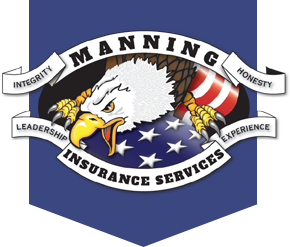Applying for a house loan? Getting a new car? Buying living room furniture on credit? In these situations, people expect a lender to check their credit score. But what about when you’re getting car insurance? Do credit scores affect car insurance? You may think the answer is no, but, many states – including South Carolina – use your credit score as a basis for determining your insurance premium.
Banks and mortgage companies review credit scores as a way to determine the likelihood someone will pay back a loan. Car insurance companies, on the other hand, look at credit scores to determine the likelihood a customer will file a claim.
According to a Consumer Reports Special Report on car insurance, the average difference paid by drivers with good credit scores versus those with the best scores is $214. And that number can be much greater depending on where you live.
For car insurance in South Carolina, Consumer Reports looked at the premium rates for the average new customer – a single adult driver with a clean driving record. If that driver has an excellent credit score, the premium is $1,300 versus $1,520 for a good score and more than double at $3,339 for a driver with poor credit. To put that into perspective, a driver with excellent credit and a DWI conviction is paying $2,210 – still less than the person with a good driving record but a poor credit score.
Insurance companies don’t have to tell you if they’ve looked at your credit score or if they’ve selected certain elements in a credit report to create their own, customized score. This means consumers may not even realize how their credit score affects car insurance in South Carolina.
So, what can you do?
Pay attention to your annual premiums. Too often people simply pay the bill without reviewing it carefully to see how it might have changed from the previous year. If you notice a significant premium hike, but you didn’t have an accident, add a family driver or get a new car, it’s worth asking about the price increase.
Monitor your own credit score. Once a year, get a free copy of your credit reports from all three credit bureaus at annualcreditreport.com. You can check for any discrepancies or signs of identity theft. If there are errors, you can request a new score.
Do you best to maintain excellent credit or work to improve your credit score if it’s low. Not only will this help your car insurance premiums, but it will be beneficial should you apply for a mortgage loan or need a new car.
Request an extraordinary life circumstances exception should you experience an uncontrollable life event that would impact your credit score, such as job loss, divorce or the death of a spouse. Legislators strengthened these exceptions in state laws during the Great Recession after concerns people would be hit with higher insurance premiums after the large number of layoffs and consistent unemployment. Under this provision, consumers can request insurers not use a credit score against them in situations where a drop in the score is beyond their control.
Shop around. It’s always a good idea to get price quotes from other car insurance companies every year or two. Don’t assume you’re getting the best price simply because you’re a long-time customer. And as you’re shoppping for car insurance in South Carolina — where auto insurance premiums can vary widely based on credit scores – get quotes from at least three companies so you know you’re getting the best deal.
And as you’re gathering those insurance quotes, do your own research on how credit scores affect car insurance in South Carolina. Check out the WalletHub.com’s 2016 report on car insurance prices by credit score.
Learn more about Manning Insurance Services’ Car Insurance Policies.

